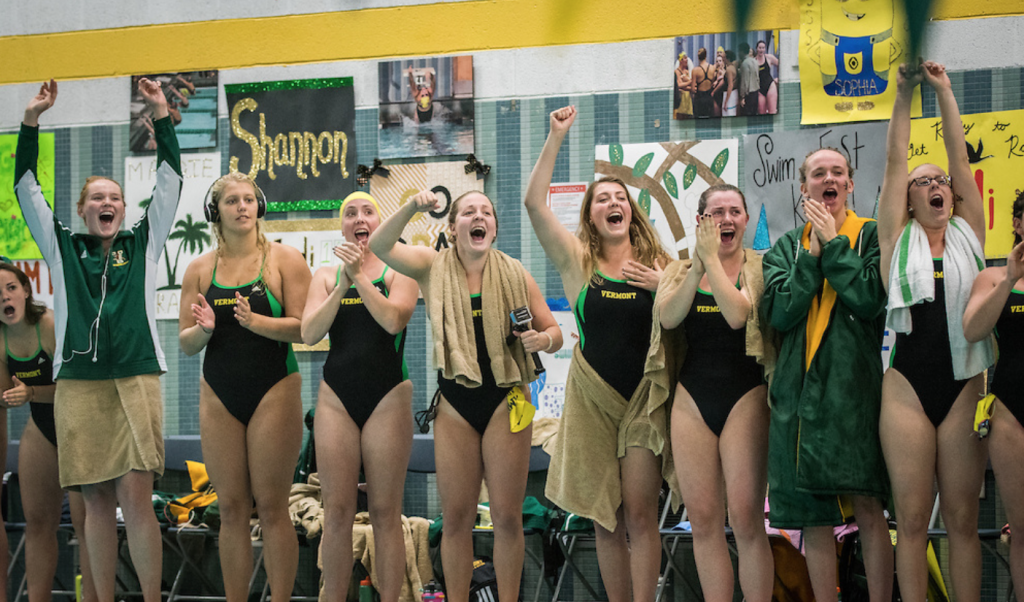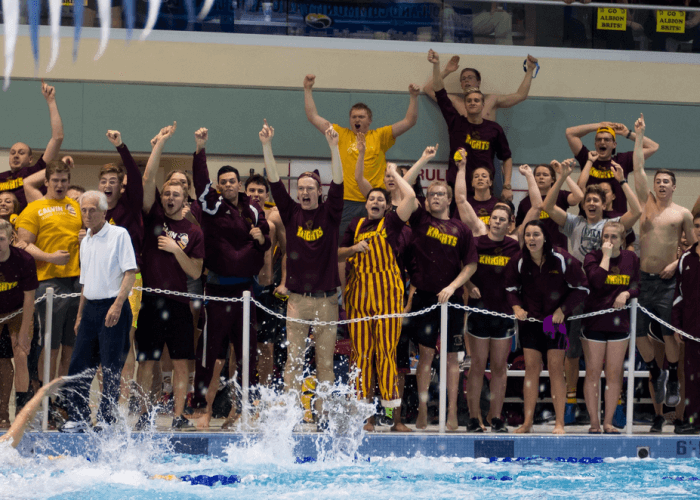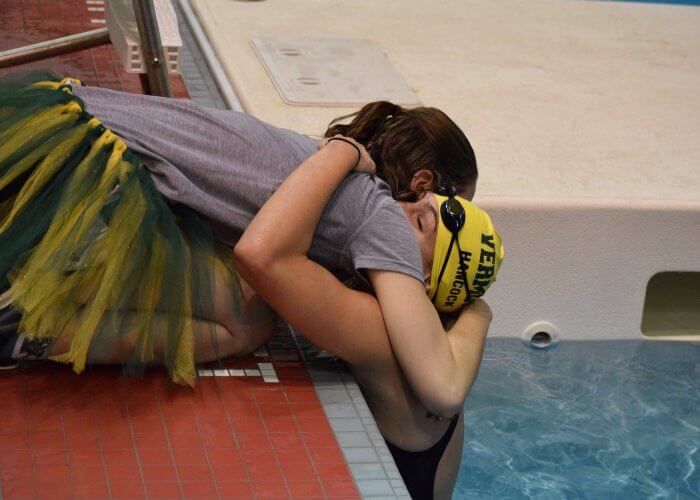For the Love of the Sport—Passion Versus Politics

By Maddie Strasen, Swimming World College Intern.
Almost everything we do in life is based on our language. We can either wake up, tell ourselves we’re going to have a good day, and make the most of every moment, or we can beat down on ourselves or others to foster a negative environment. We incorporate this internal language into sports, and it determines how we perform every single day.
When did our language in regards to sports become so negative? Why do we tell ourselves we aren’t good enough, fast enough, or strong enough? Why do we put others down for pushing themselves as hard as they can, or not pushing themselves hard enough? There are several factors that can affect the way we think and speak about swimming, but one that sticks out is the political environment that is often associated with the sport. Politics in terms of sport can be associated with power struggle, conflict between individuals, and unnecessary judgement.
There is no arguing that swimming is a competitive sport. There will always be individual rivalries or rivalries among teams. There will always be someone faster, someone stronger, someone who can stretch their arms out farther or kick harder, but because of the political atmosphere on almost every pool deck across the country, many athletes no longer use competition as a means to improve their own performance. It becomes a game of one-upping one another, rather than trying to push each other to be the best that each individual can be.
Although how one uses language is ultimately up to each individual himself, outside factors affect the words that swirl inside one’s head in terms of competition. Coaches telling swimmers they aren’t good enough, comparing them to others, or solely using them for points can cause swimmers to feel used or useless. Harsh words coaches often use to describe how to take down the competition, for example “smash,” “destroy,” or “plummet” leave athletes with the sole idea that the goal is to make the other team or the other athletes feel defeated. Words like these can build an ineffective amount of anxiety. Competition is okay, being mean is not.
With each race, in order to give our full and honest effort, we must not get into the minds of others but race with our hearts and use each outcome as a means for improvement. We should be able to say “nice race” to the competition next to us and truly mean it. Why not learn from someone’s faster kick or tighter streamlines rather than making a singular goal to “destroy” them? Having competition should keep one motivated, not keep one feeling defeated.

Photo Courtesy: Jeremy Crawford
Language can move towards becoming personal attacks, and shift into the realms of the bleachers at swim meets. Discussion of scholarship amounts, who worked harder to get to where they are, whose events are more difficult, and character is too often discussed among parents. This negative talk can move into the household, either talking negatively about teammates, competitions, or the individual athlete. Teammates are plotted against each other, swimming becomes a competition for parents, and the sport becomes a completely overbearing lifestyle for the athlete.
Competition among coaches fosters a political environment and can affect a swimmer’s attitude towards the sport. Coaches have competition amongst themselves, comparing each other in terms of how many fast swimmers they produce, how many swimmers they can send off to college programs, how many of their swimmers represent them during the summers of their college years, etc.
Coaches athletes can often be viewed no longer as people but point-scoring machines that can make them look better, helping them move onto higher ground in the world of swimming. Is reputation so important that coaches are willing to risk the mental health of their athletes? Are coaches becoming selfish enough to take away the fun that a sport is supposed to be in order to improve their own career, rather than their athlete’s career and confidence? Is a swimmer’s love for the sport not enough to gain a coach’s time and attention?
Swimming becomes less and less for the love of the sport every single day. The sport has become a chore, a cause for anxiety, a pressure-packed contest. With too much politics, the pressure rises and passion is lost. When will we finally compete for the love of the sport?

Photo Courtesy: Christa Weaver
All commentaries are the opinion of the author and do not necessarily reflect the views of Swimming World Magazine nor its staff.



